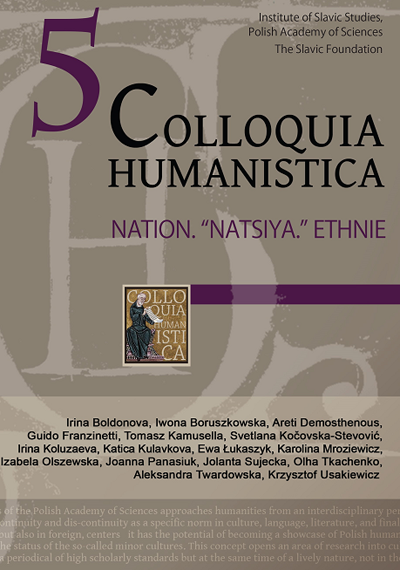Ćwiczenia pisemne: magia przodków i nowi intelektualiści w powieściach Mii Couto, Lhoussaina Azerguiego i Doroty Masłowskiej
Written Exercises: Ancestral Magic and Emergent Intellectuals in Mia Couto, Lhoussain Azergui and Dorota Masłowska
Author(s): Ewa ŁUKASZYKSubject(s): History, Cultural history, Studies of Literature, Sociology, Political history, Social history, Polish Literature, Other Language Literature, Social development
Published by: Instytut Slawistyki Polskiej Akademii Nauk
Keywords: Mia Couto; Lhoussain Azergui; Dorota Masłowska; post-colonialism; national unity; trans-colonialism; identity;
Summary/Abstract: The article consists in a comparative reading of three novels: Um rio chamado tempo by Mia Couto, Le pain des corbeaux by Lhoussain Azergui and Paw królowej by Dorota Masłowska. In spite of the difference of the historical circumstances of Mozambique, Morocco and Poland, these three books meet at an intersecting point: the emergence of an intelligentsia that uses literacy and writing as an instrument to deconstruct the post-colonial concept of nation and to operate a trans-colonial renegotiation of identity. By the notion of trans-colonial, I understand the opposition against new kinds of symbolic violence that emerged after the end of the colonial period; here this new form of oppression is related to the concept of national unity – an artificial construct that leaves no place for a dualism or pluralism of cultural reality (two shores of the Zambezi river, Arab and Berber dualism in Morocco, “small homelands” in Poland). The young heroes of the novels grasp the pen in order to break through the falseness or the taboos created by the fathers, establishing, at the same time, the relation of solidarity with the world of the grandfathers. The act of writing becomes an actualization of the ancestral universe of magic. The settlement of accounts with the parental generation concerns the vision of nation built upon the resistance against the colonizer (it also refers to the Polish cultural formation, based on the tradition of uprisings and resistance against the Russians).
Journal: Colloquia Humanistica
- Issue Year: 2016
- Issue No: 5
- Page Range: 127-140
- Page Count: 14
- Language: English

